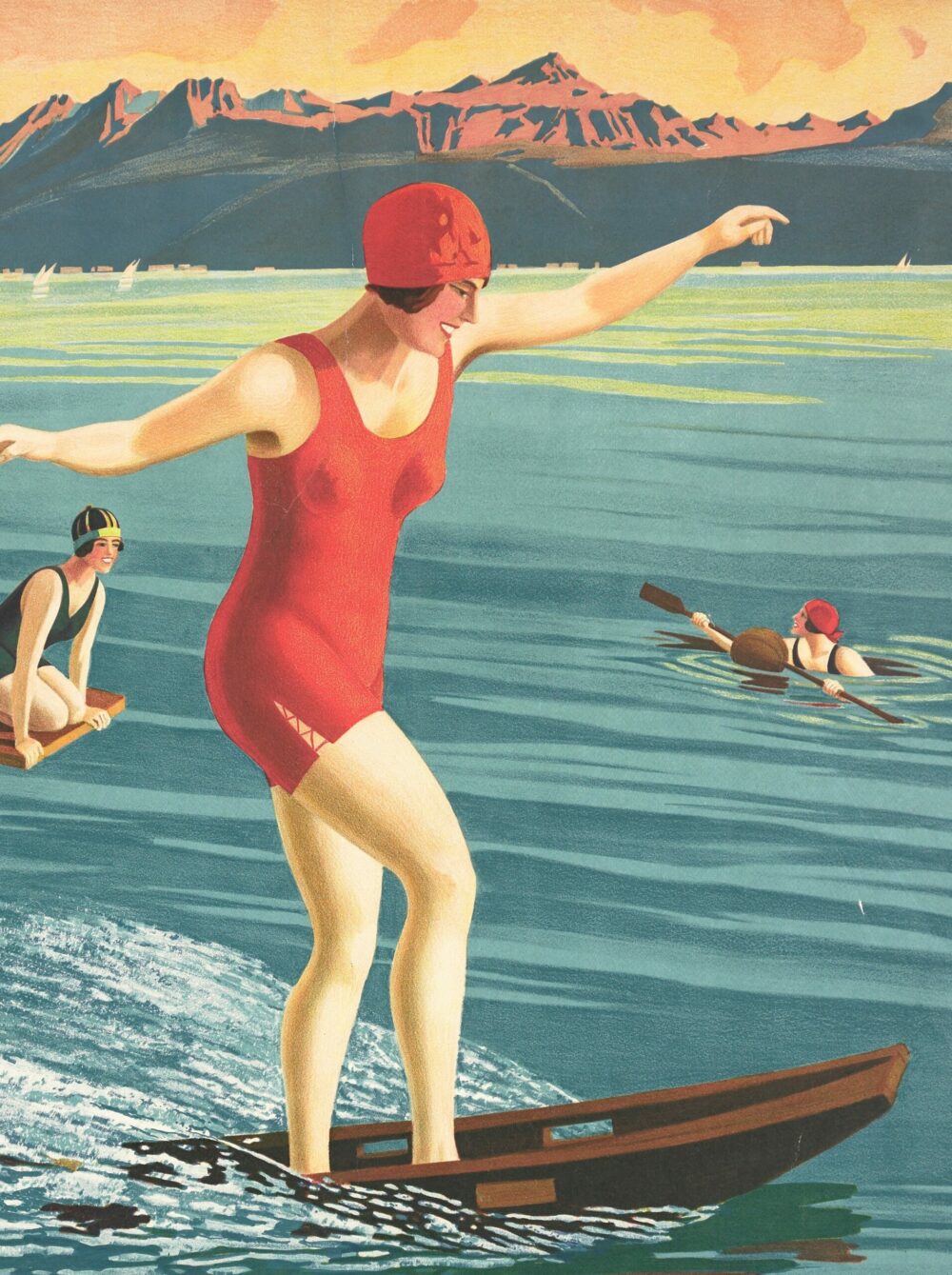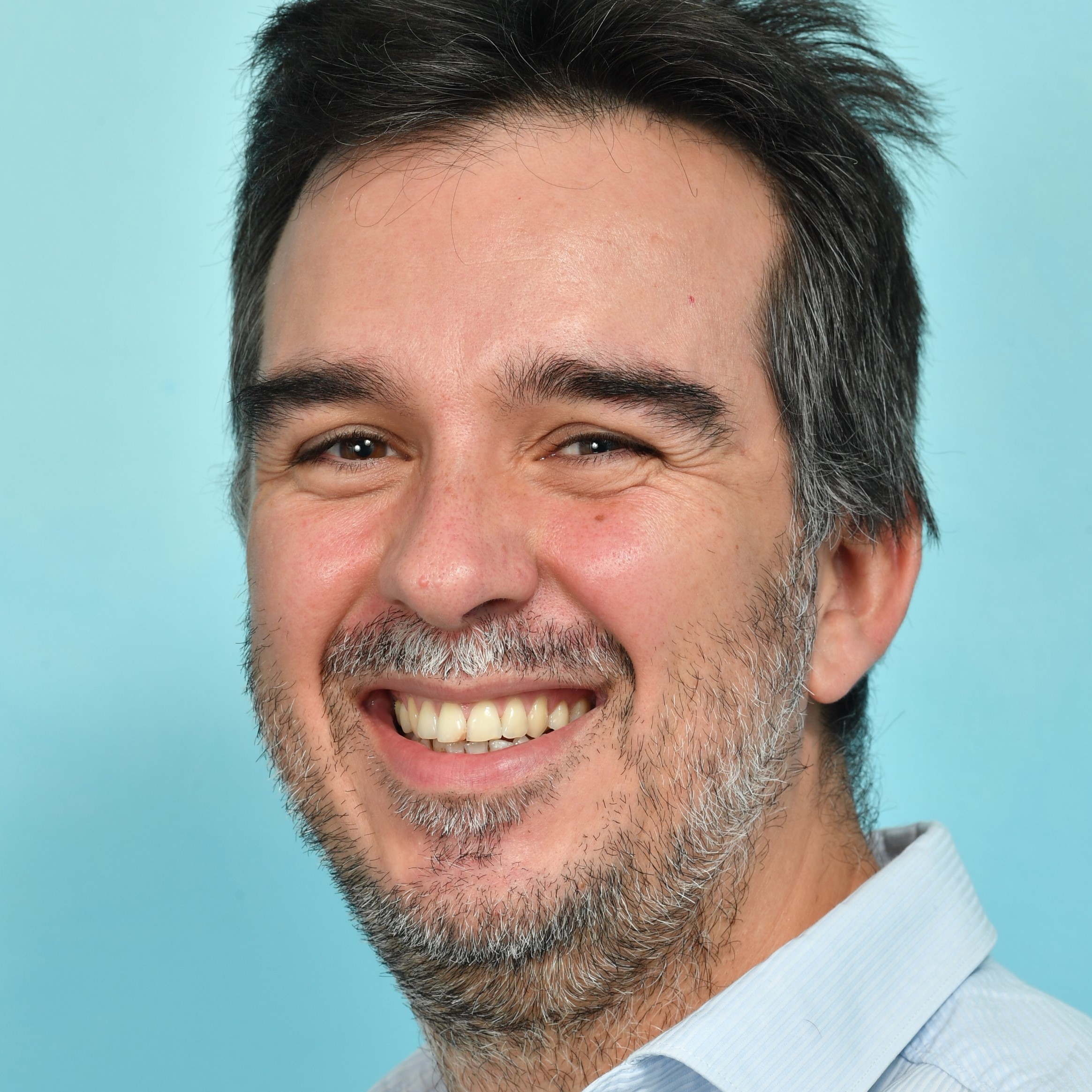EcoMaris, a training vessel on the St. Lawrence: “Young people are confronted to the river!”
Between Montreal and the Atlantic Ocean, the St. Lawrence is the sea! And there is no better school of life than sailing, says Simon Paquin, founder and director of EcoMaris, the first sail training ship in the Gulf of St. Lawrence. Founded in 2006, EcoMaris offers sea expeditions for young people to combine environmental and civic awareness and promote socio-professional reintegration. Interview with an outstanding navigator and trainer who reveals the secrets of the EcoMaris pedagogy on the occasion of Living with Rivers.
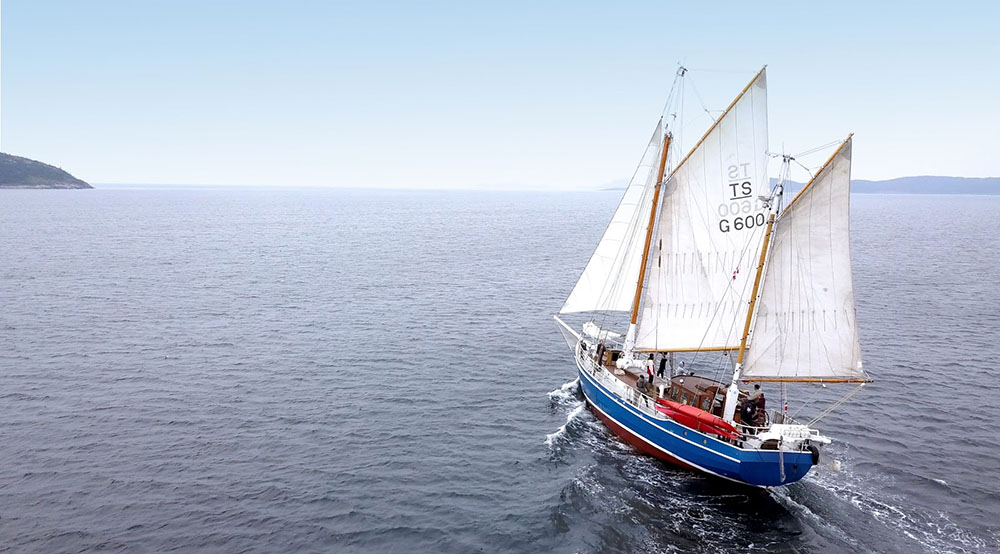
What can we discover when boarding EcoMaris?
Learning to sail on EcoMaris is an excuse to discover the river and develop a bond with it. It is necessary to go through the bond: we protect well what we know and what we like. Rivers are also not so accessible. The St. Lawrence is a very large area, with populations scattered all over the place, living the river in isolation. EcoMaris is a facilitator of access to really remote places, thousands of kilometres away from big cities.
EcoMaris programmes, be they artistic, scientific, culinary or educational, help raise awareness of the many issues surrounding the St. Lawrence. But all the programmes are centred on navigation, which we approach from the emotional side. We want to help people discover the beauty of the St. Lawrence and the pleasure they can get from navigating it. The idea is to stop dissecting knowledge in silos and to make people understand that the river’s ecosystem is a whole… Also, we deal with multiple realities of the river: the preservation of marine protected areas, the regeneration of species, belugas, plankton, commercial shipping, the glaciation of the river… We start from people’s interest to develop a broader love of the environment.
How do the participants feel about the river before they embark?
People don’t know it at all! Often they don’t even know that the river passes through Montreal. There is a great need for knowledge. The river is like a neighbour you’ve never spoken to. So we are sure to get a result, because many participants start from scratch! (laughs).
And where do you take them sailing?
Here, we sail at sea: from Montreal to Newfoundland, via the North Shore, the Gaspé Peninsula, the Magdalen Islands… Sometimes we go as far as Nova Scotia, to cover the entire Gulf of St. Lawrence.
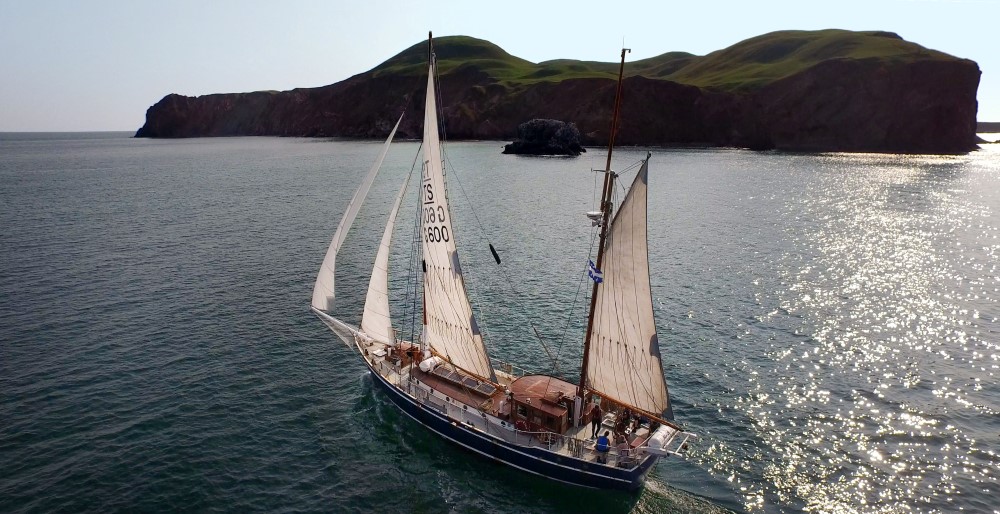
With the Cabestan programme, EcoMaris offers young people in difficulty the opportunity to sail two weeks on the St. Lawrence as a team. How is the river a tool for socio-professional reintegration?
In the Cabestan programme, the river serves as a means of learning. The river, with its tides and currents, shoals and maritime traffic, is a much more difficult learning environment than an office work. The first Cabestan trip even took place in the snow!
And then the young people have to go beyond their limits, learn to breathe, eat differently – because everything moves on a boat. It’s a learning process that is as much physical as it is emotional, where you learn about teamwork, navigation, environmental issues, astronomy… I always say that the river is a living encyclopaedia, from which you draw your needs, for two weeks, a year, or a lifetime… The St. Lawrence is a school of life, which allows the young participants to discover passions, new interests, to increase their motivation, to develop social links…
Can one say that the river is a source of energy?
Yes, the river is life. And people really need to feel alive! It sounds silly when you say it like that, but… So many people don’t really live any more, they live in front of a screen, and when you give them the opportunity to meet real living humans, with different colours, different ways of thinking, different experiences… You immerse them in something that is apparently more difficult, but going on the river is more invigorating and more energizing than dying slowly in front of a screen. The aim is also to raise awareness by confronting something outside the comfort zone. And that creates movement!
The participants also learn to appreciate effort. As a “sadistic pirate” (laughs), I like to see the young people pushing themselves a bit: making an extra effort, trying something new that they wouldn’t do at home. For example: cleaning the toilets, emptying the bins, keeping the ship’s kitchens in order! You have to go to work, do it again, three, four times… Sailing doesn’t give you the opportunity to do things by halves. And people are proud of it, at the end of the expedition.
There is also the experience of holding the helm, which is an impressive and symbolic experience for those who have never sailed. A young man once told me that his father didn’t even trust him enough to let him mow the lawn: he was shocked that I would entrust him with a boat worth several thousand dollars! The aim is to give them the space to build up their confidence.
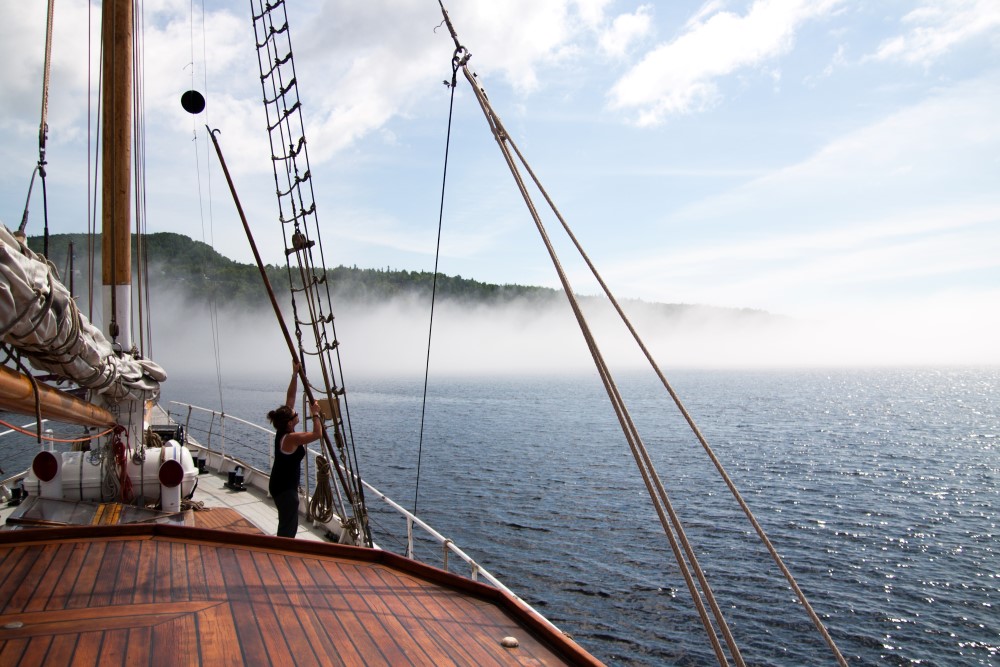
Spending two weeks sailing on a boat also means learning to cooperate...
The young participants learn to communicate about what they want and what they like in order to reach a consensus. Skills that they can then transfer to other places! Collaboration is not always a given, and it is a major asset for the rest of their journey.
Have these trips awakened careers around the St. Lawrence?
At the beginning, we thought that if 10% of the graduating class did it, it was already a good thing. And in the end, about 25% of the participants join the maritime industry, by obtaining captain’s or deckhand’s certificates, or by working for the Canadian Coast Guard. Some go on to work in ship logistics in the port of Montreal, or join the river indirectly, by studying marine biology or by becoming a cook on a ship.
Cooking around the St. Lawrence
EcoMaris also stimulates taste buds! The expeditions are also an opportunity to go sea fishing and to start discovering the culinary resources of the St. Lawrence. EcoMaris is also working on the creation of a restaurant on the docks of the Port of Montreal, which will offer a menu based on the river, its algae, plankton and unloved fish.
Are your missions also aimed at aboriginal communities?
We have developed a project called “Les Gardiens du Territoire” (The Guardians of the Territory) with Aboriginal communities along the St. Lawrence. Historically, the river has not been used much by these communities. Towards Ottawa, the river was a transitional space; downstream, it was even a threat. There was fishing activity at low tide, but these people did not go out to sea much, even though there was trade, particularly in furs, between the north and south coasts, between the towns of Tadoussac and Cacouna. The natives do not naturally associate themselves with the river.
That said, we have forged links with communities further east, such as the Innu and the Mi’gmaq People. The idea is not to give a right to the river, but to serve as a link to unite communities. The programme is designed to adapt to the particularities of these communities. For example, one of the projects separates men and women, whereas with the Wendake community, it is mixed. There are as many possibilities as there are communities to discover the river.
At the beginning, we felt a bit like “colonizers”: we went very slowly, so as not to impose a way of doing things. But we realized that the communities were in demand on the subjects of group communication and leadership. We managed to set up a dialogue between two cultures, by learning on our side a new way of evolving in nature, of making the “link” with the river.
In some communities, this link has disappeared: young people no longer go goose hunting, they no longer know the plants… Rebuilding a link with the marine territory, even if it is not historically a favourite indigenous territory, fits into this context.
And what is your own connection with the St. Lawrence?
I felt connected to the river when I realized that it was right there, right next to me, and that I hadn’t used it! I sailed a lot in Martinique, where I lived for two years, and I realized that I loved sailing, but I didn’t know Quebec and the St. Lawrence. When I came back, I trained as a sailing instructor on the river, and that’s when the magic happened – I was 20. I didn’t understand why so few people sailed, why there were no sailboat schools, why certain places were not accessible… I was also fascinated by the wild beauty of the river, and I wanted more people to have access to it. At the same time, I wanted to strike a balance: the river is not a tourist attraction that can be developed in an uncontrolled way! I don’t want the St. Lawrence River to be populated by dozens of cruise ships. What’s beautiful is its wild aspect: puffin colonies, seals… When you’re out on the open sea, sailing and there’s no one around, it’s great!
What if the St. Lawrence was a character?
Well… It’s a wild river, sometimes capricious… The St. Lawrence is welcoming, but not very sociable. It is calm and enraged when necessary. It is not friendly with everyone!
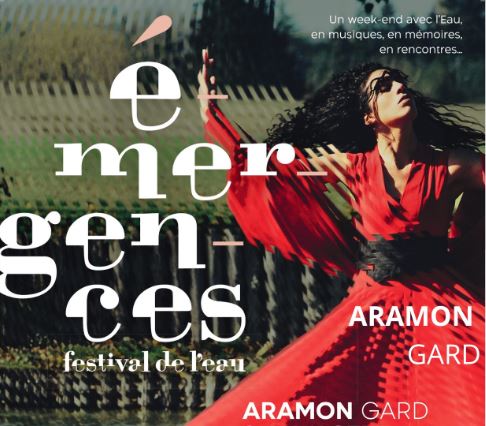
Emergences Festival de l’Eau
Première édition d'un rendez-vous musical et convivial incontournable : le festival Emergences à Aramon, au bord du Rhône près d'Avignon. Au programme du 9 au 11 septembre : concerts gratuits, ballades, conférences... et plus encore !
Agir pour le Vivant, Vienne – 21-23 July
Come and talk about the Rhone and the great rivers in this artistic and friendly festival! Agir pour le Vivant will take place at the Musée Gallo-Romain in Vienne from 21 to 23 July. An opportunity to discover the very first stand dedicated to Living with Rivers, and to protect the rivers together.